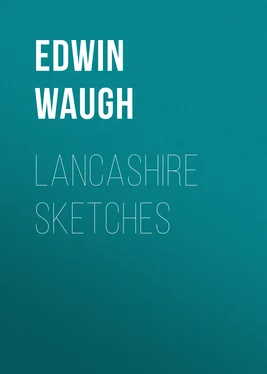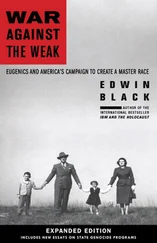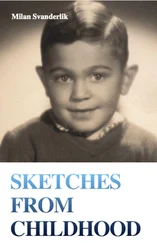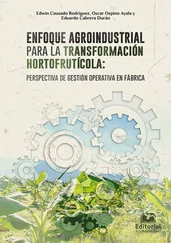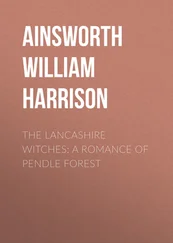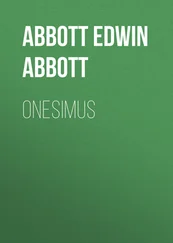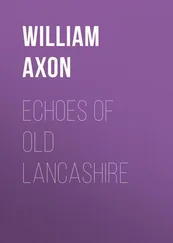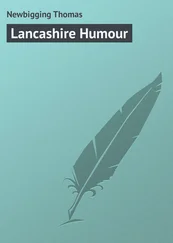Edwin Waugh - Lancashire Sketches
Здесь есть возможность читать онлайн «Edwin Waugh - Lancashire Sketches» — ознакомительный отрывок электронной книги совершенно бесплатно, а после прочтения отрывка купить полную версию. В некоторых случаях можно слушать аудио, скачать через торрент в формате fb2 и присутствует краткое содержание. Жанр: Путешествия и география, foreign_antique, foreign_prose, на английском языке. Описание произведения, (предисловие) а так же отзывы посетителей доступны на портале библиотеки ЛибКат.
- Название:Lancashire Sketches
- Автор:
- Жанр:
- Год:неизвестен
- ISBN:нет данных
- Рейтинг книги:4 / 5. Голосов: 1
-
Избранное:Добавить в избранное
- Отзывы:
-
Ваша оценка:
- 80
- 1
- 2
- 3
- 4
- 5
Lancashire Sketches: краткое содержание, описание и аннотация
Предлагаем к чтению аннотацию, описание, краткое содержание или предисловие (зависит от того, что написал сам автор книги «Lancashire Sketches»). Если вы не нашли необходимую информацию о книге — напишите в комментариях, мы постараемся отыскать её.
Lancashire Sketches — читать онлайн ознакомительный отрывок
Ниже представлен текст книги, разбитый по страницам. Система сохранения места последней прочитанной страницы, позволяет с удобством читать онлайн бесплатно книгу «Lancashire Sketches», без необходимости каждый раз заново искать на чём Вы остановились. Поставьте закладку, и сможете в любой момент перейти на страницу, на которой закончили чтение.
Интервал:
Закладка:
Mary. Does hoo get nought for it?
Jone. Nawe, nought 'at'll mend it. But, aw'm mad enough, sometimes, to plaister it wi' my hond,—iv aw could find i' my heart.
Mary. Oh, aw see what to meeons, neaw.... An' aw dar say thea gi's her 'casion for't, neaw an' then.
Jone. Well, aw happen do; for th' best o' folk need'n bidin' wi' a bit sometimes; an' aw'm noan one o' th' best, yo known.
Mary. Nawe; nor th' warst noathur, Jone.
Jone. Yo dunnut know o', mon.
Mary. Happen not, but, thi'rt to good to brun, as hea't be.
Jone. Well, onybody's so, Mary. But, we're o' God Almighty's childer, mon; an' aw feel fain on't, sometimes; for he's th' best feyther at a chylt con have.
Mary. Ah, but thea'rt nobbut like other childer, Jone; thea doesn't tak as mich notice o' thy feyther, as thea should do.
Sam. Well, well; let's o' on us be as good as we con be, iv we aren't as good as we should be; an' then wi's be better nor we are.
Jone. Hello! that clock begins 'o givin' short 'lowance, as soon as ever aw get agate o' talkin'; aw'm mun be off again!
Sam. Well; thae'll co' a lookin' at us, when tho comes this gate on, winnut to, Jone? Iv tho doesn't, aw'st be a bit mad, thae knows.
Jone. As lung as aw'm wick and weel, owd crayter, aw'st keep comin' again, yo may depend,—like Clegg Ho' Boggart.
Sam. Well neaw, mind tho does do; for aw'd sooner see thee nor two fiddlers, ony time; so good neet to tho, an' good luck to tho, too, Jone; wi' o' my heart!
The night was wearing late, and, as I had yet nearly three miles to go, I rose, and went my way. This road was never so much travelled as some of the highways of the neighbourhood, but, since railways were made, it has been quieter than before, and the grass has begun to creep over it a little in some places. It leads through a district which has always been a kind of weird region to me. And I have wandered among those lonely moorland hills above Birtle, and Ashworth, and Bagslate; up to the crest of old Knowl, and over the wild top of Rooley, from whence the greatest part of South Lancashire—that wonderful region of wealth and energy—lies under the eye, from Blackstone Edge to the Irish Sea; and I have wandered through the green valleys and silent glens, among those hills, communing with the "shapes, and sounds, and shifting elements" of nature, in many a quiet trance of meditative joy; when the serenity of the scene was unmixed with any ruder sounds than the murmurs and gurglings of the mountain stream, careering over its rocky bed through the hollow of the vale; and the music of small birds among the woods which lined the banks; or the gambols of the summer wind among the rustling green, which canopied the lonely stream, so thickly that the flood of sunshine which washed the tree-tops in gold, only stole into the deeps in fitful threads; hardly giving a warmer tinge to the softened light in cool grots down by the water side. Romantic Spoddenlond! Country of wild beauty; of hardy, simple life; of old-world manners, and of ancient tales and legends dim! There was a time when the very air of the district seemed, to my young mind, impregnated with boggart-lore, and all the wild "gramerie" of old Saxon superstition,—when I looked upon it as the last stronghold of the fairies; where they would remain impregnable, haunting wild "thrutches" and sylvan "chapels," in lonely deeps of its cloughs and woods; still holding their mystic festivals there on moonlight nights, and tripping to the music of its waters, till the crack of doom. And, for all the boasted march of intellect, it is, even to this day, a district where the existence of witches, and the power of witch-doctors, wisemen, seers, planet-rulers, and prognosticators, find great credence in the imaginations of a rude and unlettered people. There is a little fold, called "Prickshaw," in this township of Spotland, which fold was the home of a notable country astrologer, in Tim Bobbin's time, called "Prickshaw Witch." Tim tells a humourous story about an adventure he had with this Prickshaw planet-ruler, at the Angel Inn, in Rochdale. Prickshaw keeps up its old oracular fame in that moorland quarter to this day, for it has its planet-ruler still; and, it is not alone in such wild, outlying nooks of the hills that these professors of the art of divination may yet be found; almost every populous town in Lancashire has, in some corner of it, one or more of these gifted star-readers, searching out the hidden things of life, to all inquirers, at about a shilling a-head. These country soothsayers mostly drive a sort of contraband trade in their line, in as noiseless and secret a way as possible, among the most ignorant and credulous part of the population. And it is natural that they should flourish wherever there are minds combining abundance of ignorant faith and imagination with a plentiful lack of knowledge. But they are not all skulkers these diviners of the skies, for now and then a bold prophet stands forth, in distinct proportions, before the public gaze, who has more lofty and learned pretentions; witness the advertisement of Dr. Alphonso Gazelle, of No. 4, Sparth Bottoms, Rochdale, which appears in the Rochdale Sentinel , of the 3rd of December, 1853. 6 6 "Beneficial practical philosophy, No. 4, Sparth Bottoms, near Rochdale.—Prognostic astro-phrenology, or nature considered as a whole—its matter, its properties, its laws, physical, moral, and intellectual; and the effect of their influence on individual life, character, and ability. From these premises, and nearly twenty years' experience, any lady or gentleman may have the most valuable advice on matters of health, sickness, profession, trade, emigration, and speculation; also marriage—its prospects to the inquirer, whether it will be attended with happiness, the time of its occurrence, a full description and character of the present or future partner, with copious instruction to the unmarried—which offer or party to take, and thus secure the fullest amount of happiness, shown to any individual by this combination of science. The principal requisite points of information for applying the science to the benefit of an inquirer are—the precise date, place of birth, and the station in life. Attendance every day except Mondays, at No. 4, Sparth Bottoms, Rochdale. "Dr. Alphonso Gazelle."
Oh, departed Lilly and Agrippa; your shadows are upon us still! But I must continue my story of the lone old road, and its associations; and as I wandered on that cold and silent night, under the blue sky, where night's candles were burning, so clear and calm, I remembered that this was the country of old Adam de Spotland, who, many centuries since, piously bequeathed certain broad acres of land, "for the cure of souls," in the parish of Rochdale. He has, now, many centuries slept with his fathers. And as I walked down the road, in this sombre twilight, with a hushed wind, and under the shade of the woody height on which the homestead of the brave old Saxon stood, my footsteps sounding clear in the quiet air, and the very trees seeming to bend over to one another, and commune in awful murmurs on the approach of an intruder, how could I tell what the tramp of my unceremonious feet might waken there? The road crosses a deep and craggy glen, called "Simpson Clough," which is one of the finest pieces of ravine scenery in the county, little as it is known. The entire length of this wild gorge is nearly three miles, and it is watered by a stream from the hills, called "Nadin Water," which, in seasons of heavy rain, rages and roars with great violence, through its rocky channels. There is many a strange old tale connected with this clough. Half way up a shaley bank, which overhangs the river on the western side of the clough, the mouth of an ancient lead mine may still be seen, partly shrouded by brushwood. Upon the summit of a precipitous steep of wildwood and rock, which bounds the eastern side of the clough, stands Bamford Hall, a handsome, modern building of stone, a few yards from the site of the old hall of the Bamfords of Bamford. The new building is a residence of one branch of the Fenton family, wealthy bankers and cotton spinners, and owners of large tracts of land, here and elsewhere. On an elevated table-land, at the western side of the clough, and nearly opposite to Bamford Hall, stood the ancient mansion of Grizlehurst, the seat of the notable family of Holt, in the reign of Queen Elizabeth. The Holt family were once the most powerful and wealthy landowners in the parish of Rochdale. The principal seats of the family in this parish were Stubley Hall, in the township of Wardleworth, and Castleton Hall, in the township of Castleton. The manor of Spotland was granted by Henry VIII., to Thomas Holt, who was knighted in Scotland, by Edward, Earl of Hertford, in the thirty-sixth year of the reign of that monarch. Part of a neighbouring clough still bears the name of "Tyrone's Bed," from the tradition that Hugh O'Neal, Earl of Tyrone and King of Ulster, took shelter in these woody solitudes, after his defeat in the great Irish Rebellion, in the reign of Queen Elizabeth. Mr. John Roby, of Rochdale, has woven this legend into an elegant romance, in his "Traditions of Lancashire."
Интервал:
Закладка:
Похожие книги на «Lancashire Sketches»
Представляем Вашему вниманию похожие книги на «Lancashire Sketches» списком для выбора. Мы отобрали схожую по названию и смыслу литературу в надежде предоставить читателям больше вариантов отыскать новые, интересные, ещё непрочитанные произведения.
Обсуждение, отзывы о книге «Lancashire Sketches» и просто собственные мнения читателей. Оставьте ваши комментарии, напишите, что Вы думаете о произведении, его смысле или главных героях. Укажите что конкретно понравилось, а что нет, и почему Вы так считаете.
